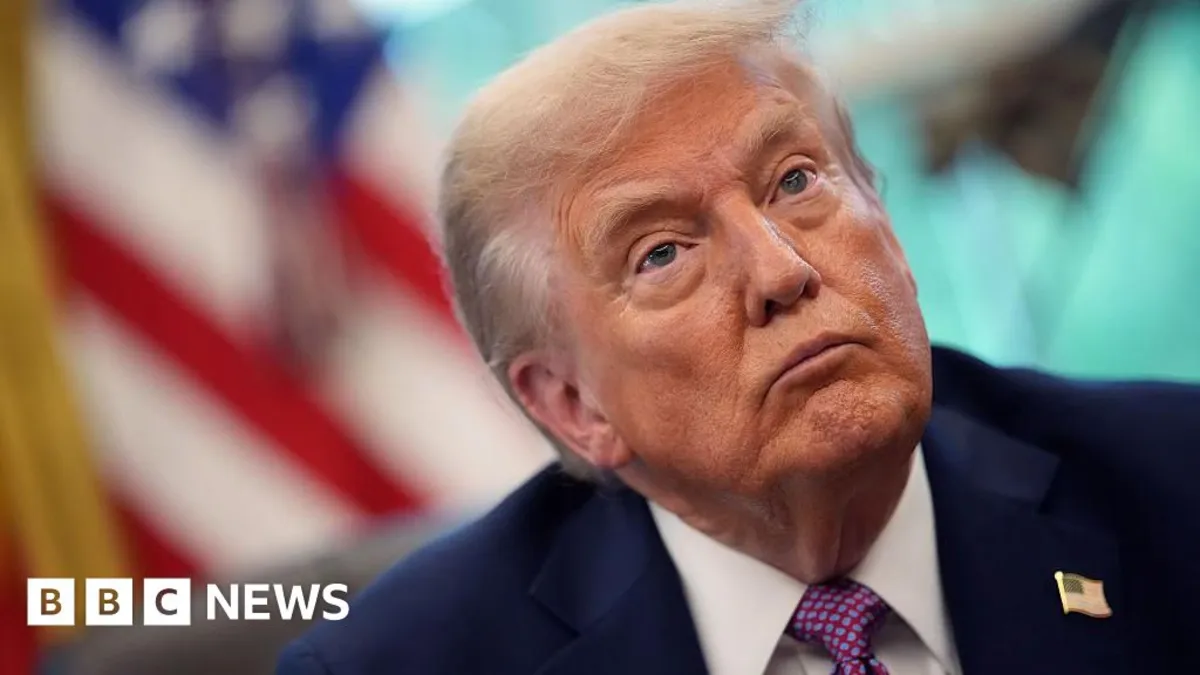
Former President Donald Trump has issued a strong warning regarding the potential consequences if Venezuelan jets fly over US naval ships and place American forces in a dangerous situation. This warning follows recent reports that Venezuela flew military aircraft near a US vessel off the coast of South America for the second consecutive day, as confirmed by US officials in a report to CBS News, a partner of the BBC.
The tensions come on the heels of a US military strike against a vessel allegedly carrying drugs from Venezuela, resulting in the deaths of 11 individuals, according to Trump administration officials. In response to the escalating situation, Venezuelan President Nicolás Maduro has categorically denied the US allegations, asserting that the ongoing differences between the two nations do not warrant military conflict. Maduro stated, "Venezuela has always been willing to talk and engage in dialogue, but we demand respect."
During a press briefing in the Oval Office on Friday, Trump was asked what actions would be taken if Venezuelan jets were to approach US naval vessels again. He responded emphatically, stating, "Venezuela would be in trouble." He further communicated to his military general, who was present, that he has the authority to escalate military actions if necessary.
Since taking office again in January, Trump has ramped up his anti-drug trafficking efforts in Latin America. Maduro has countered these actions by accusing the US of pursuing regime change through military threats. Addressing the media, Trump dismissed these claims but commented on what he termed a "very strange election" in Venezuela, referencing Maduro's contested election for his third term in January.
Trump has highlighted the issue of drug trafficking, claiming that drugs are flooding into the United States from Venezuela. He pointed out that members of the Tren de Aragua gang, which is designated as a terrorist organization in the US, are reportedly residing in Venezuela. In light of these concerns, the US military has taken steps to strengthen its presence in the southern Caribbean, deploying additional naval vessels and thousands of marines and sailors to combat drug trafficking.
The White House announced on Friday that it will be sending 10 F-35 fighter jets to Puerto Rico as part of this military buildup. When questioned about the increased military assets in the Caribbean, Trump stated, "I think it's just strong. We're strong on drugs. We don't want drugs killing our people." This commitment aligns with Trump's long-standing criticism of Maduro, as he doubled the reward for information leading to Maduro's arrest to $50 million (£37.2 million) in August, branding him one of the largest narco-traffickers globally.
During Trump's first term, the US government charged Maduro and several high-ranking Venezuelan officials with various offenses, including narco-terrorism, corruption, and drug trafficking. Despite these allegations, Maduro has consistently rejected the claims made by the US administration.
As the situation unfolds, the international community is closely monitoring the implications of these heightened tensions between the US and Venezuela, as well as the potential for further military engagement in the region.